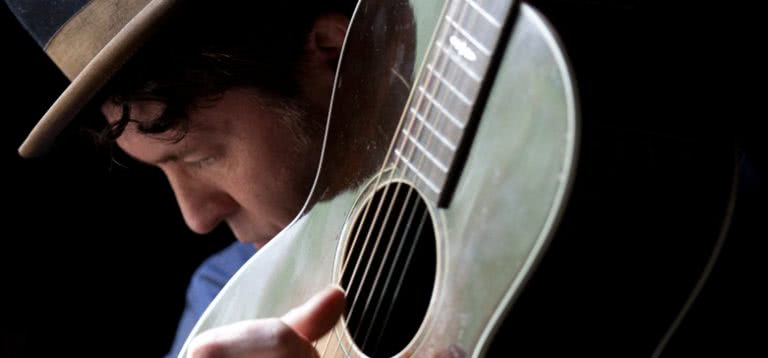Joe Henry – singer, songwriter, producer and modern-day keeper of the American folk music tradition – traces his interest in music back to his childhood in North Carolina in the early 1960s. “I was obsessed with songs at a very young age – likely before it would have ever occurred to me that someone actually wrote them,” Henry says. “They seemed to exist organically, like salt on a table, there at the ready to flavour whatever they touched.”
By the time he was a teenager, Henry had moved with his family to the Midwestern industrial city of Detroit. While Henry says his Southern origins “pierce deep into one’s DNA”, he retains a soft spot for Detroit, especially as the city struggles to escape its troubled recent history. “I have strong ties to Detroit, and to the Midwest as a whole,” he says. “My wife is a Michigan native, and I made some of my closest and most enduring friendships there. Detroit is an extremely soulful place, and it is heartbreaking to see it languishing as it has been for so long now. But I believe in its powers of redemption.”
Yet it was the power of song to which a young Henry gravitated. “I was especially enamored of narrative songs, like the ones Jimmy Webb had written for Glen Campbell, or the ballads Johnny Cash so powerfully delivered in the mid-’60s. But it was probably Bob Dylan, in truth, who woke me up to the idea that, when I heard a song or a recording, real decisions were being made by someone with a vision, and that’s when I remember thinking I, too, wanted to write a song.”
Henry’s interest in music was complemented by a wider interest in the arts. In the early 1970s Henry became aware of the African-American comedian Richard Pryor, whose witty and caustic observations exposed the latent racism that existed just behind the facade of self-righteous American cultural hegemony. In 2001 Henry recorded ‘Richard Pryor Addresses A Tearful Nation’, a track that took as its narrative voice the late American comic.
A couple of years ago Henry and his brother co-authored a biography of Pryor, to critical acclaim.
But it is within music that Henry continues to find both inspiration and peace. Henry has been quoted as saying his interest in the American songbook is analogous to his parents’ interest in the Bible. While modern American folk artists such as Woody Guthrie and Bob Dylan have used song to critically explore the dominant American culture, as well as celebrating hitherto unheralded (and marginalised) aspects of the surrounding culture, Henry’s views are more sanguine. “I don’t there is any obligation whatsoever [to be critical],” he says. “But I am interested and awake to the way our culture moves like weather through our lives, both influencing and reflecting it.”
Henry’s latest album, Invisible Hour, continues the rich narrative tradition of his own songwriting. Henry has previously suggested that the album is about marriage, not as a noun but as a state of living. “[The album] is about commitment and devotion, and all of its poetic invention and articulation,” he explains. “I didn’t mean for that to be read quite so literally, but I do think it’s all in there nonetheless.”
While Henry acknowledges a thematic narrative in his music, he says it’s not a deliberate thing. “I don’t have pre-formed notions that I then try to fit into song form – I write to find out what I am writing about. It is discovery more than self-expression. I frequently find after the fact that the songs on any given album share concerns and interests. But I recognise it all in hindsight, and I could be wrong in my interpretations. I am not necessarily the best judge of what’s going on.”
Invisible Hour out now through The Planet Company / MGM.Catch him live alongsideHeath Cullen atThe Basement onTuesday September 9 and Wednesday September 10, tickets online.

































